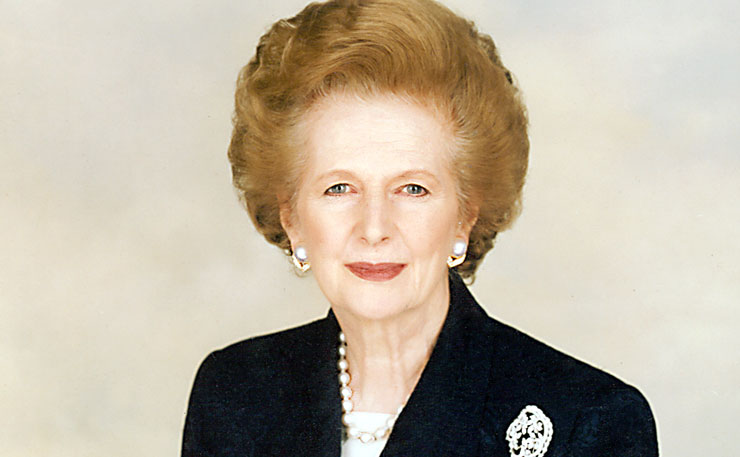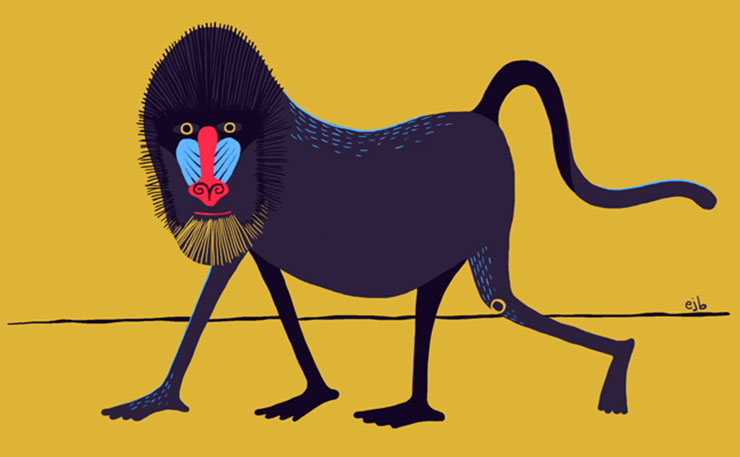As in Australia, Britain’s hung parliament suggests the Anglophone democracies have reached a fork in the road. One path leads to more inclusive social democracy. The other leads to more predatory capitalism. Mike Dowson looks at how we got here and what our future choice of direction will mean to us.
We were talking about examples of prosperous countries where poverty is rare and wealth and income equality is high. These are places where nearly everyone can live well, without working a lot.
Norway and Austria are contemporary examples.
One person looked confused. “What’s the point of being rich,” she said, “if there are no poor people.”
In 2007, Cornell economist Robert Frank asked people whether they would prefer a bigger house, but one that was smaller than their neighbours’, or a smaller house, as long as it was bigger than their neighbours’. What do you think the majority chose?
It seems the measure we apply to our own prosperity is not absolute, but relative to those around us.
How do we know we’re well off? We look next door.
But there is another side to this. Researchers Richard Wilkinson and Kate Pickett demonstrated, with copious evidence from around the world, that more equal societies benefit everyone, including the rich. This is revealed in the statistics for crime, incarceration, teenage pregnancy, longevity, mental health and many others. And the benefits are not just social, but economic. More people with money to spend means greater overall prosperity.

Among comparable countries, the measures of life satisfaction are higher in those with greater equality.
Does this seem paradoxical? Apparently, we like to get ahead of our neighbours, but the less we do so the better.
It turns out it’s not that simple. Frank’s subjects lived in the US, where equality is among the lowest, and the safety net is broken. Your position on the ladder makes a huge difference. Setbacks can be devastating, and leave people vulnerable.
In Denmark, higher up the life satisfaction table, wealth equality is also low, but income equality is high, and social services are generous. Most property belongs to a relatively small cohort. But tenancies are protected, and rents are controlled, so the rest of the population lives well anyway. Not surprisingly, results of these kinds of surveys are very different in Denmark.
Economists use the term ‘marginal utility’. It means the extra benefit you get from more of something, and it diminishes the more you have already. Extra wealth delivers much less benefit to the rich than it does to the poor.
There is evidence that well-being continues to improve as a rich country gets richer. But there is also evidence that well-being hardly increases at all with personal wealth, beyond a surprisingly modest level.
To sum this up, it’s good to live in a rich country, but unless you’re poor, the extra wealth that makes your own life better is the wealth we have in common. If that sounds implausible, your scepticism probably stems from your ideas about human nature.
Like our close primate relatives, we exhibit a tendency to compete for rewards. Research shows that, beyond a basic level of comfort and security, the rewards which have the most effect are not material, but psychological and social. The respect and acknowledgment of others in our group is what matters most to us, and the loss of it can be traumatic.
This is even more pronounced among the rich, for whom the marginal utility of extra wealth is mostly in the status it confers. But this is only half the story.
Human nature
Evolutionary biologist David Sloan Wilson, among many others, argues that what sets humans apart is our extraordinary ability to cooperate. Natural selection at the group level, rather than the level of the individual, rewarded cooperation, and this inheritance bestowed huge advantages for our species.
There is strong evidence that suppression of competition within groups was a major factor in early human expansion. But competition between groups, over use of resources, seems to have played a role throughout.
Naturally, this led to conflict, so groups themselves had to learn to cooperate, at increasing levels of scale, to avoid the hostilities that wasted lives and resources, and culminated in the violent revolutions and terrible world wars of the Twentieth Century.
But these two forces are in our nature still. In the vastly complex modern economy, they are intertwined at every level, but represented emblematically by the polar ideologies of capitalism and democratic socialism.

George Cooper, who has been both a research scientist and an investment strategist, suggests the way forward is not the victory of one or another of these forces, but the harmonising of them. How might we do that?
The research on competition indicates that it does not improve individual performance in most circumstances. It negatively affects learning and memory and may encourage behaviour which only undermines the effectiveness of others. So, in education, for example, it’s a bad idea.
Even in sport, where the primacy of competition would seem to be self-evident, it serves a limited and specific purpose.
Top sportspeople must learn to reduce competitive stress and maintain focus on the practice of the discipline, even in the heat of battle. Competition in sport is theatre. It’s where technique and mettle are tested and honed. The real work happens elsewhere. And it’s more than an individual achievement.
Behind the winner at Wimbledon is a team. Her prowess is built on sponsorship, coaching, science and medicine. And the contest only takes place thanks to an international effort of cooperation. Sport is a cooperative enterprise.
Neoliberalism – cooperation’s ugly cousin
There is, however, another kind of competitiveness. It’s a legacy of our primate past and its ethos is not excellence, but dominance. It taints the hierarchies of our organisations, and distorts the ways we exercise and experience authority.
In schools and workplaces, its ugly side manifests as bullying, in homes as domestic violence. And in the modern economy, it finds expression in neoliberalism.
Like any ideology, neoliberalism is a story about who we are. In this story, we are independent agents, competing to acquire the most and best of everything for ourselves. We do this with freedom of speech and action, personal effort, private ownership and wealth accumulation.
It’s not entirely wrong. But nor is it the whole picture. It’s as if the bride has been cut out of the wedding photo.
What neoliberalism doesn’t care too much about is what we do to succeed. Or who or what gets harmed in the process. Other people must look after themselves. There will be winners and losers, but the world will be a better place, because the worthy will thrive. It’s natural selection at the individual level, in an artificial wilderness, subject to unforgiving laws devised by humans.
It’s why our governments are always trying to get rid of taxes, regulations and social services. Supposedly, once this suffocating thicket of support and protection is cleared away, and our lives are given over to the quest for private profit, competition and innovation will propel us to glory. Or, more accurately, some of us.
The more you look, the more it seems like an excuse for the alpha primates to get all the bananas.

Primatologist Robert Sapolsky studies baboons. The most famous case he documented showed what happened to a troop when the alpha males were removed by disease. Our ideas about primate biology and evolution up to that point suggested that the smaller, younger males would step in to fill the dominant roles. But they didn’t.
The hierarchical culture of privilege enforced by violence was replaced by one that was peaceful and egalitarian. Cortisol levels fell, a sign of reduced stress, and the health of the troop improved.
We learned from this that competition for dominance is not genetically mandated. It tends to happen when it’s already happening. Behaviour creates conditions which reinforce the behaviour, until another factor intervenes. But a change in conditions can push the other way too.
Four decades ago, Australia was one of the most prosperous, egalitarian countries. It’s true our economy was riddled with waste and inefficiency. But housing was inexpensive and we all shared – through wage laws and social services – in years of productivity gains built on health, education, science and technology, which were publicly funded. Most people had never lived better.
What changed was that technology made labour less important to production. And Ronald Reagan and Margaret Thatcher turned on the turbo boost.
Privatisation, deregulation, tax cuts for the rich and the disempowerment of workers’ unions created an open season for private capital in the US and the UK. And we shuffled along behind our Anglophone cousins.
These are conditions which favour the competitive individual. Someone less encumbered by a strong sense of social obligation. Competition, in pursuit of self-interest, became the new black. It produced both a new economic normalcy and a new politics.
It wasn’t all bad. It cleared away a lot of cobwebs and liberated energy. It’s what happened next that has left us with a malaise.
An alpha male baboon won’t give up his place readily. He’ll do anything to keep it. If he had intelligence equivalent to ours, and our laws to contend with, he would no doubt evade taxes and regulations, manipulate popular opinion, and reward those who helped him retain power.
But if he was fully human, he would be naturally disposed to cooperate. He would sit on boards with his peers, mingle with them at fundraisers, and send his kids to the same private schools to be groomed for privileges they wouldn’t need to fight for.
A rich person’s neighbour is another rich person, in another waterfront mansion. He may indulge in some one-upmanship over yachts and art pieces, but ruthless competition isn’t something he wants for his group. He wants it for the people who work for him, and the businesses who serve him, to make labour, goods and services cheaper.

When the alpha rich person spends big, he buys media, politicians and ‘think tanks’. They do his talking for him. They laud him as a ‘lifter’ and ‘wealth creator’. They help him lobby for tax cuts and public subsidies. And they shake an angry finger at the ‘leaners’, like the unemployed workers his businesses lay off.
When he speaks of ‘innovation’, he doesn’t mean scientific discovery, or technological advancement. He means new ways of exploiting the desires and capacities of others.
A brave government could have changed conditions again to restore the balance. But by then, big money had overrun politics and the media. Ours resorted to smoke and mirrors. They channelled the proceeds of the mining boom to well-heeled voters, and rigged the system to help the big boomer voting bloc with its favourite pastimes – buying real estate, and saving for retirement – while the rich raided the till.
It was a devilishly clever strategy, because it fooled more ordinary Australians into supporting the ideology of the dominant group. Believing their houses were making them rich, they felt as if they’d joined the winners’ club. And now they have an interest in helping the actual rich preserve their stranglehold on the country.
The airwaves have been so carpet-bombed with neoliberal propaganda, no-one looks much at the evidence. The propagandists themselves only measure public perceptions, so they can fine-tune the fusillade of bullshit.
But the evidence is there for anyone to see. Housing is unaffordable. Wages are stagnant. Productive investment is in decline. Essential services are unreliable and overpriced. Unemployment, poverty and homelessness are on the rise. And the shining, silver grail of economic growth turns out to be a plastic replica. No one seems to know what happened to the real one.
When prosperity erodes in an unjust system, politics gets nasty.
The winners may blame greenies, gays, Muslims, unions, feminists, the ABC, the Human Rights Commission and the last left-wing government, which was in office in the 1970s. But the data, the IMF and nearly every respected economist agree. It may be good for a shakeup, but in the long run, neoliberalism doesn’t work.
Luckily, there is another path.
The road to Utopia
Imagine if no one had to fight tooth and claw just to survive. Imagine if even the poorest had a guarantee of food, shelter, health care, education, public transport and communications. Imagine if a house was a place to live, not a way to capture unearned gains from future generations.
What would people do, if they didn’t have to struggle so hard? Perhaps they’d nurture their talents, learn new skills, start new enterprises, and care for each other and the planet.
And what about the rich, who currently screw economic rent from essential services, what would they do? Perhaps they’d invest in those new enterprises, doing something for the whole country, like developing high-tech exports.
Dreaming, say the neoliberals. It would never work.
 But this is how it was at one time in Australia. And it persists in the strong social democracies of northern Europe. Smaller than us, with fewer natural advantages, they are managing well. Sweden’s economy, for example, is growing faster than ours. Yet Swedes work fewer hours.
But this is how it was at one time in Australia. And it persists in the strong social democracies of northern Europe. Smaller than us, with fewer natural advantages, they are managing well. Sweden’s economy, for example, is growing faster than ours. Yet Swedes work fewer hours.
They don’t have all the answers, but they do have some, including some we already knew, but appear to have forgotten. And yes, they pay more tax. Which just means they pay someone a living wage to look after their children or their aging parents, instead of paying a rich person to do it by screwing someone like themselves.
As in sport, cooperation on essentials is the foundation for excellence through benign competition.
Or we could keep shuffling along behind the US. A divided society of smug haves and resentful have-nots, with plummeting markers for health and longevity, and staggering numbers of poor living in worsening conditions. Of course, there would still be a few lucky winners.
So here we are, with our parliament in stalemate, wavering at the crossroads. One of the two paths leads out of the jungle. The other is a dead end. That’s where all the screeching is coming from. The kings of the jungle don’t want us to leave. They like it here.
The rest of us need to decide. Because the jungle is not going to civilise itself.
Donate To New Matilda
New Matilda is a small, independent media outlet. We survive through reader contributions, and never losing a lawsuit. If you got something from this article, giving something back helps us to continue speaking truth to power. Every little bit counts.






